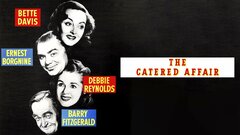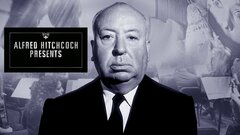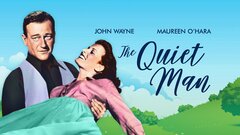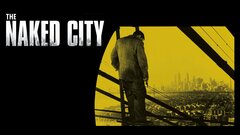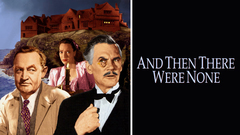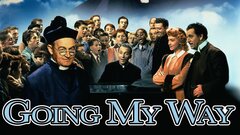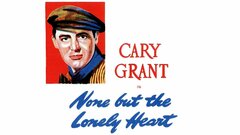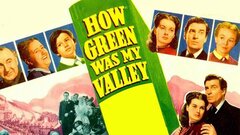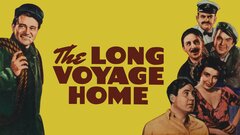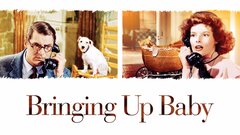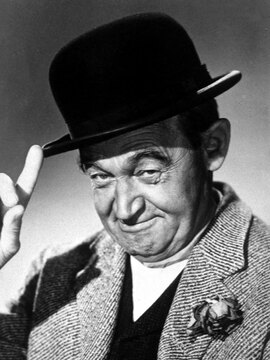Going from being one of the leading comedic performers of Ireland's highly respected Abbey Theatre to a second career as a much loved actor on the silver screen, Barry Fitzgerald did not adopt acting as a profession until middle age, but achieved far more in the next 30 years than most of his stage and screen colleagues. Establishing himself as a venerable and diverse character performer via his work in dozens of stage plays at home and on tour with the Abbey Players, Fitzgerald was soon appearing in movies based on his stage successes and quickly developed a reputation in this medium as an able performer. However, he scaled unexpected heights when cast as an irascible old Catholic priest in the Bing Crosby vehicle, "Going My Way" (1944), which earned him new levels of respect within the movie industry and notoriety with audiences. From that point on, he often played characters of differing profession but similar stripe: old, petulant and loveable. With his plucky demeanour, mischievous smile, natural warmth and soft brogue, the 5'3" Dublin native attained a level of fame unheard of for a character actor and became the only performer in Academy Awards history to receive Best Actor and Best Supporting Actor nominations for the same character in the same film.
The quintessentially Irish performer was born William Joseph Shields on March 10, 1888. After graduating from Skerry's College, his 22-year association with The Abbey Theatre began upon visiting an actor friend backstage. Fascinated by the inner workings of the theater and the craft, Fitzgerald took up acting as a hobby and made his Abbey debut in the play "Hyacinth Halvey" (1914). This was followed by more stage work and a professional pseudonym so that he could remain employed as an administrative officer with The Dublin Board of Trade, while secretly rehearsing during his lunch hour and performing in the evenings. This routine would continue for 15 years until it was clear to Fitzgerald that acting was the path he was meant to take in life. In 1929, he gave up his 20-year civil service career to join the Abbey Players fulltime at the age of 41. By the time he left the company seven years later, he had played over 150 different roles in productions like Sean O'Casey's "The Plough and the Stars" and "Juno and the Paycock," and gone on several overseas tours. Fitzgerald became so identified with his role as The Orator in "Juno" that he was invited to make his film debut in Alfred Hitchcock's rather archaic 1930 adaptation of the play. Similarly, when John Ford wanted to turn "The Plough and the Stars" into a feature, Fitzgerald was enlisted for a cast that also included his younger brother, Arthur Shields, who had followed in his footsteps. That 1936 film was significantly tampered with by RKO Pictures and partially re-shot by another director, but Fitzgerald's performance survived the alterations and a long and fruitful association between the actor and Ford was established.
Between 1932 and 1941, Fitzgerald made 15 appearances on Broadway, recreating his celebrated Abbey performances in the likes of "The Playboy of the Western World," "The Well of the Saints" and two revivals of "The Far Off Hills" and "Juno and the Paycock." In 1935, he received an award from New York City mayor Fiorello LaGuardia, who dubbed him the "greatest character actor in the English-speaking profession of this age." Fitzgerald's screen career also continued during this time, with the actor playing secondary roles in fare like Howard Hawks' screwball comedy "Bringing Up Baby" (1938) - held in the highest regards years later, but a notorious flop in its original release - Ford's "Four Men and a Prayer" (1938), "The Sea Wolf" (1941) and "Tarzan's Secret Adventure" (1941), where he was saved from being mauled by a lion thanks to quick thinking on the part of a production electrician. Working again with Ford, Fitzgerald enjoyed one of his more offbeat roles to date, as a sailor in "The Long Voyage Home" (1940) and Ford also made superb use of the actor's talents in the poignant Welsh family coal-mining drama "How Green Was My Valley" (1941), which won Best Picture that year.
However, it would be director Leo McCarey who gave Fitzgerald the role for which he was best remembered: the irascible Roman Catholic priest Father Fitzgibbon in "Going My Way" (1944). Having run his New York parish for 45 years, an elderly priest is judged in need of help by his bishop. Young and spirited Father O'Malley (Bing Crosby) is sent to be Fitzgibbon's assistant, but is actually there to deal with the church's financial issues and gently ease the old priest out the door. In between this and a handful of subplots, the two bickering stars charmed viewers, helping to make the patently sappy and distended proceedings surprisingly agreeable. As the church figurehead, Fitzgerald - who was actually Protestant in real life - was viewed as both a lead and a supporting part, so Academy voters inadvertently nominated him for both categories. He ended up winning the latter prize, while fellow Best Actor nominee Crosby scored the Best Actor statue. Due to wartime shortages, the Oscars that year were made out of plaster; while practicing his golf swing at home, Fitzgerald accidentally sent the head of his statue sailing across his living room on a line drive. The film ended up with five other Oscar prizes, including Best Picture and Best Director, and topped the box office that year. Fitzgerald's Oscar triumph was almost marred by scandal as a manslaughter charge filed against him the previous year for hitting and killing a pedestrian with his car was dismissed only two months before the ceremony.
Now enjoying considerable popularity with the movie-going public and under contract to Paramount, Fitzgerald continued this loveably cantankerous persona in fare like the musical comedy "Duffy's Tavern" (1945), this time as Bing Crosby's actual father, but did enjoy a slight detour as an evil judge in the Agatha Christie murder mystery "And Then There Were None" (1945). Fitzgerald and Crosby reteamed as practitioners of another honourable profession for 1947's "Welcome Stranger," which echoed the premise of "Going My Way" in rather suspicious fashion. Fitzgerald plays an aging small town doctor who enlists Crosby's younger, less conventional practitioner to fill in for him while on vacation, gradually coming to respect the man. Subsequent roles were in largely unmemorable fare, but Fitzgerald had another chance to stretch as a determined detective in Jules Dassin's groundbreaking police procedural "The Naked City" (1948), which introduced a whole new semi-documentary style to the genre, emphasizing realism via shooting on actual locations, rather than studio backlots. Additional attempts by Paramount to rekindle the "Going My Way" magic by putting Fitzgerald and Crosby in "Variety Girl" (1947) and "Top o' the Morning" (1949) fell short of the mark, but Ford's epic romantic comedy "The Quiet Man" (1952) provided Fitzgerald with another indelible role as a colorful bookie-turned-matchmaker out to bring together John Wayne and Maureen O'Hara. Shot on location in Ireland, the project was a major success for the unlikely studio Republic, known primarily for Westerns and serials, and viewing the lovely Technicolor production became a St. Patrick's Day tradition for many fans. Going forward, Fitzgerald made a rare television appearance as a petty criminal- turned-department store Santa Claus in a 1955 episode of "Alfred Hitchcock Presents" (CBS, 1955-1962) and played what some critics deemed to be a regrettable caricature of his usual hard-drinking Irishman in "The Catered Affair" (1956), the actor's last major feature film. Walt Disney had expressed his hope as early as 1946 that Fitzgerald would star in a movie adaptation of Herminie Templeton Kavanagh's two Darby O'Gill fantasy novels, but by the time the production was finally ready for the cameras in March of 1958, the now 70-year-old actor was experiencing health problems and ultimately returned to Ireland, undergoing exploratory brain surgery in 1959. Eventually titled "Darby O' Gill and the Little People," the production went ahead with Albert Sharpe in the role. After a period of convalescence, Fitzgerald passed away on January 4, 1961 at a nursing home in his birthplace of Dublin. The year prior, he had been awarded a star on the Hollywood Walk of Fame and in April 1988, Ireland honoured the centennial of Fitzgerald's birth by releasing a stamp bearing his image.
By John Charles


